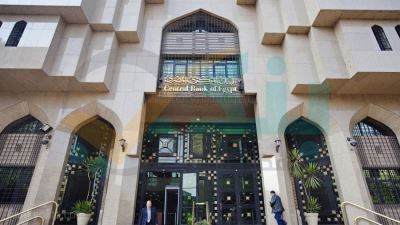Goldman Sachs predicts a substantial decline in Egypt’s financing needs for Q2 2024


International banking and investment firm, Goldman Sachs, estimated that Egypt will require significantly less financing through borrowing for the second quarter of 2024, attributing the reduced need to the substantial financing it secured during Q1 2024 and the Ras El Hekma investment deal. Goldman Sachs economist, Farouk Soussa indicated that estimates suggest the ministry received approximately LE 240 billion from the initial tranche of the Ras El Hekma deal with the UAE. In a research note obtained by the Arab World News Agency, the investment firm explained that the Ministry of Finance issued domestic debt instruments worth LE 1.8 trillion in Q1 of 2024. With this, the Ministry of Finance is expected to have secured financing in advance of around LE 530 billion by the end of March 2024. Bearing in mind that Egypt’s total financing needs, estimated at LE 1.1 trillion and includes the budget deficit and domestic debt extension, the country has achieved a significant surplus during the first three months of the year. Some of this surplus has been used to settle the ministry’s overdraft facilities with the Central Bank of Egypt, around LE 382 billion, in the January – March period. The note explained that Egypt's total public financing needs are expected to reach LE 1.6 trillion in the second quarter, including LE 1.1 trillion of total financing requirements and additional repayment of overdraft facilities from the central bank worth LE 450 billion. Balancing this out would be LE 530 billion in pre-financing along with the assumption that Egypt will receive LE 340 billion from the second tranche of the Ras El Hekma deal. Goldman Sachs estimated that this leaves Egypt with a remaining need for LE 724 billion for the second quarter. The firm suggested that these remaining needs will likely be met through local debt issuances, estimating that Egypt will issue around LE 240 billion per month in the second quarter. The note also explained that its estimation of required monthly debt instrument issuances for the second quarter is significantly lower than the average monthly issuances in Q1, which is around LE 604 billion. The report further highlighted that even with excluding the revenues from Ras El Hekma and assuming they are not allocated to finance the budget, the average monthly financing needs are projected to halve in the second quarter. Goldman Sachs attributed this decrease in financing needs to the reduced bid sizes seen since the beginning of the month, along with a decline in returns. Considering the amount of pre-financing available, expected returns from the second tranche of the UAE deal, a positive outlook on domestic inflation - with inflation forecasted to decline to around 20 percent annually by the end of the year – and the possibility of interest rate cuts in Egypt as early as next month, Goldman Sachs believes that there will be a 200-basis point reduction in rates moving forward.


























